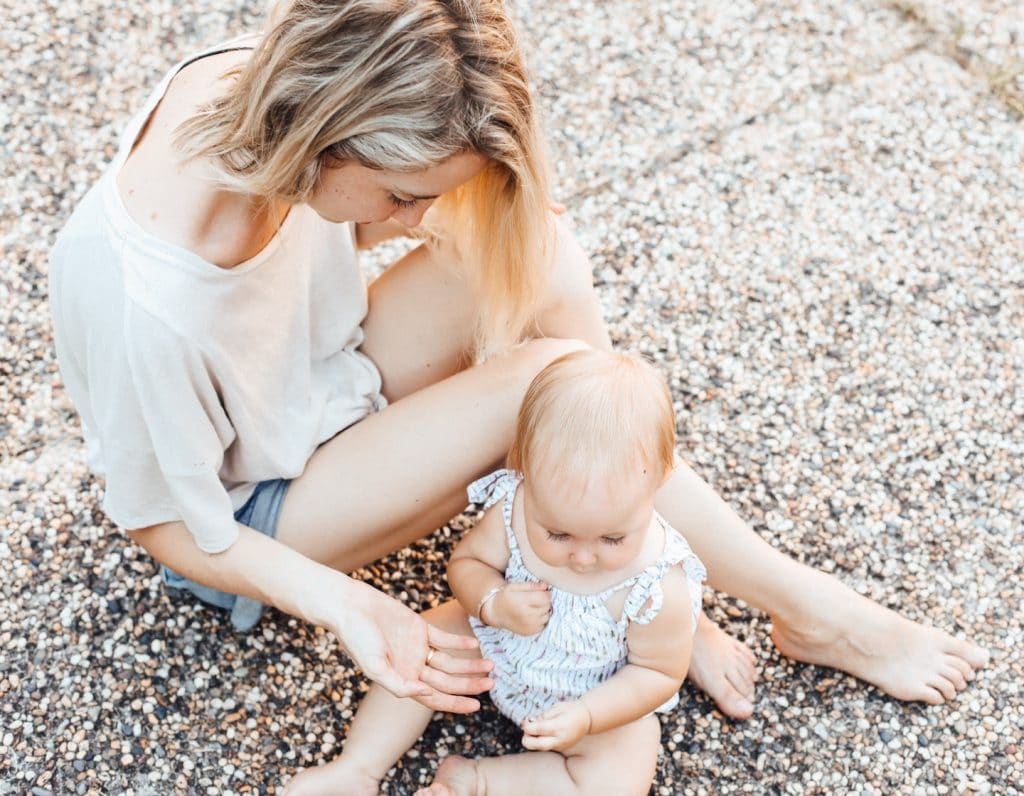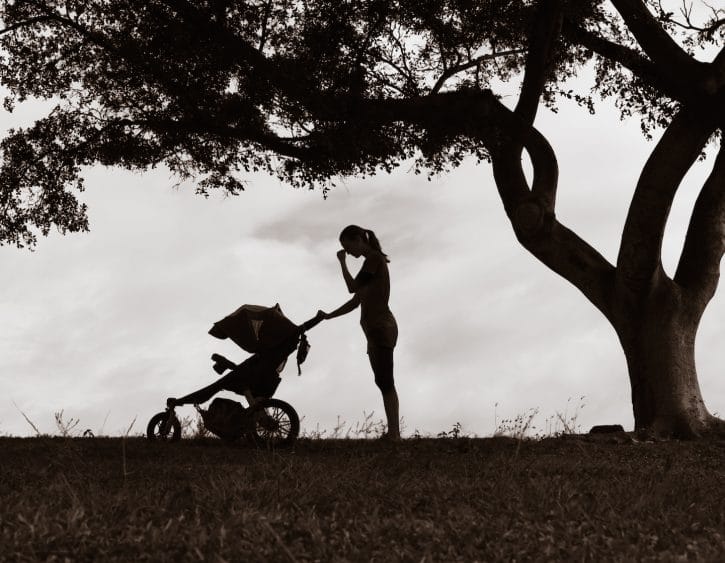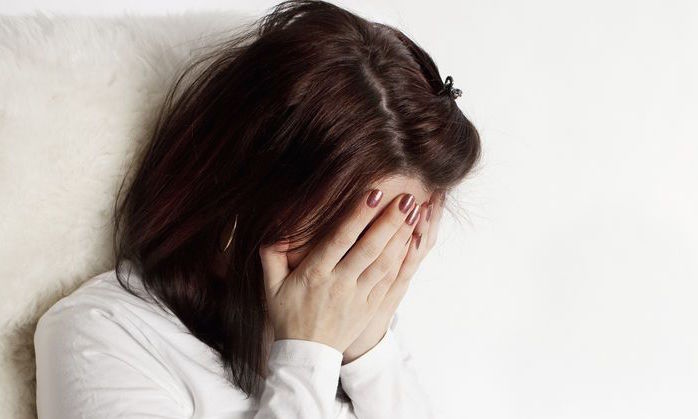
 Post Category - WellnessWellness - Post Category - HealthHealth
Post Category - WellnessWellness - Post Category - HealthHealthAn untold number of women suffer from Postpartum Depression in Singapore; whether you think you might be at-risk, mama, or are trying to help a friend, Sassy Mama Pooja shares her own story and a wealth of resources to help support women in Singapore.
Postpartum mood disorders are serious, but common and treatable, illnesses. Yet, all too often, it is shame that prevents new parents from seeking help. Mental illness carries a great deal of stigma in Singapore, and societal attitudes venerating motherhood make it hard for women to acknowledge their illness. I know postpartum depression all too well. I chronicled my experiences in Singapore in a short essay for The Washington Post, a U.S.-based newspaper. In it, I detailed my illness, and the physical and cultural barriers that I faced in seeking help.
Read More: Where to go for Counselling in Singapore
Here are local resources that will help you battle the terrifying reality of postpartum mood disorders.

What are postpartum mood disorders?
Postpartum mood disorders are not the “baby blues.” According to the Seleni Institute, “Most moms—nearly 80 percent—will experience the emotional roller coaster known as the ‘baby blues’ after giving birth. That’s because the levels of the hormones that helped sustain a healthy pregnancy drop precipitously—and immediately—following delivery. Hormones and emotions are closely connected, so these hormonal upheavals can cause rapidly changing moods, weepiness, and a general feeling of being overwhelmed.” If your symptoms emerge after or last longer than two to three weeks after giving birth, it is no longer considered to be baby blues.
If you think you might be symptomatic, Postpartum Progress provides comprehensive lists of symptoms for postpartum depression, postpartum anxiety, and OCD.
How prevalent are postpartum mood disorders?
KKH Women’s and Children’s Hospital reports that postpartum depression affects “1 in 12 local women,” but it unclear whether this figure includes Singapore immigrants (Permanent Residents, EP/DP holders, students, domestic workers). In a 2011 clinical study in ISRN Obstetrics and Gynecology, “Identifying Mothers with Postpartum Depression Early: Integrating Perinatal Mental Health Care into the Obstetric Setting,” investigators Helen Chen, Jemie Wang, Ying Chia Ch’ng, Roshayati Mingoo, Theresa Lee, and Julia Ong of KKH’s Postnatal Depression Intervention Programme found the “prevalence of perinatal depression in Singapore is about 12% for antepartum depression and about 7% for postpartum depression. Peripartum depressive symptomatology is seen in up to [one in five] pregnant women, although not all amounting to major depression.”
However, recent studies (outside Singapore) now show the range of disorders women face is wider than previously thought. “A fast-growing body of research is changing the very definition of maternal mental illness, showing that it is more common and varied than previously thought,” according to The New York Times. “In the year after giving birth, studies suggest, at least one in eight and as many as one in five women develop symptoms of depression, anxiety, bipolar disorder, obsessive-compulsive disorder or a combination.”
How do I know if I have a postpartum mood disorder?
Several of Singapore’s public hospitals* have standardized screening procedures for postpartum depression.
- KKH Women’s and Children’s Hospital’s Postnatal Depression Intervention Programme. At six weeks postpartum, women at selected KKH clinics are offered the option of having a face-to-face session with a case manager to be assessed for postnatal mental illness using the Edinburgh Postnatal Depression Scale (EPDS), an easy-to-use tool and reliable self-reported scale, as a guide. Women identified as at-risk are provided with psychiatric consultation, counseling and phone follow-up care, or directed to community resources as is appropriate. Although the Postnatal Depression Intervention Programme focuses on women who have delivered their babies at KKH, it is open to non-KKH patients, and is where I received care in 2012. The programme is run by KKH’s head of Psychological Medicine, Dr. Helen Chen.
- National University Hospital’s The Women’s Emotional Health Service. At NUH, the screening procedure is similar. Postpartum women answer a series of questions derived from the Edinburgh Postnatal Depression Scale on their own, and women identified as at-risk are referred to a psychiatrist. Case managers (nurses or medical social workers) follow up with these women periodically. The service center is open to non-NUH patients as well.
Postpartum depression and other mood disorders are treatable illnesses, and there are a number of treatment options available, including both pharmacological (and compatible with breastfeeding) and nonpharmacological therapies, such as group therapy or interpersonal psychotherapy for depression, and cognitive behavioral therapy for anxiety or OCD.
*Postpartum mental health care can vary greatly across Singapore’s hospitals, and is often dependent on who the healthcare professional is. This lack of standardization can often result in hit-or-miss diagnosis and care.
The private hospitals — Gleneagles Hospital, Mount Alvernia Hospital, Mount Elizabeth Hospital, Raffles Hospital, and Thomson Medical Centre — do not have standardized screening procedures for postpartum mood disorders at the hospital level. At the Parkway hospitals, including Gleneagles, Mount Elizabeth, Mount Elizabeth Novena, and Parkway East, postpartum screening procedures are managed directly by the OB/GYN specialists accredited to those hospitals.
How do I find a psychiatrist/therapist beyond what is available at Singapore’s hospitals?
Specialist psychiatric services and therapists are widely available, and you do not need a referral to see a psychiatrist in Singapore.
Read More: Where to go for Counselling in Singapore
When calling institutions or practices, ask if they have the name of a therapist who specialises in the treatment of women and/or depression. Expertise in postpartum depression is not as essential as finding a good, qualified therapist with whom you feel comfortable. I saw three mental health professionals who foisted their sexist and classist biases on me, and made me feel inadequate and judged, but I didn’t give up, and finally found someone with whom I clicked.
Also ask for referrals from your obstetrician/pediatrician/family doctor, breastfeeding support group, parenting or new mother support group, personal referral from friend/neighbour/someone you trust, religious institution, or your insurance website.
Where else can I find support?
Mindful Mums provides psychological and emotional support for women trying to conceive, expecting a child, or adjusting to motherhood. The organisation holds support groups both online and in person.
Breastfeeding Mothers’ Support Group holds monthly social events (Tea Art Room, Yew Tee Community Centre #04-06, 20 Choa Chu Kang Street 52). It’s facilitated by breastfeeding counselors and designed to share information and provide mother-to-mother support.
New Mothers’ Support Group is an all-volunteer community supporting mothers-to-be, new mothers and mothers new to Singapore with young children (up to age 5). They host regular events, socials, and talks for members.
Association of Women for Action and Research (AWARE): Parents can call AWARE’s helpline (1-800-774-5935; open Monday to Friday from 3pm to 9.30pm) for emotional support and direction to external resources. AWARE can also provide counseling support if the helpliner/caller feels it necessary/helpful. Additionally, AWARE’s counselors are comfortable working together with diverse clients (see below).
Stork’s Nest Singapore is a Facebook group for parents (especially parents of babies and young children) that provides a positive and supportive environment for parent discussions. Parents are also able to submit questions anonymously.
Beyond Baby Blues SG is an online community with a virtual ‘Garden of Support’, where you will find notes of encouragement from mums and can share your stories to encourage others. They aim to raise awareness for Postpartum Depression, empower mothers who are struggling with PPD and provide curated resources and support.
Can I prevent postpartum mood disorders?
It is impossible to predict who might develop these illnesses. While certain women are at risk, other cases can appear out of nowhere.
If you are at risk (have a personal or family history of depression, pregnancy complications, a newborn with health problems or other special needs, difficulty in breastfeeding, difficulties with your partner, a weak support system, financial insecurity, or unplanned/unwanted pregnancy), take these precautions:
- Research postpartum mood disorders and the breastfeeding safety of any medications
- Create a care plan, so that all the care work does not fall on your shoulders
- Exercise daily, as soon as you are given the go-ahead by your OB/GYN
- Find a new-parent group
- Confide in friends and on social media without shame
- Bookmark web resources, such as Postpartum Support International
- Programme the phone numbers of KKH and NUH in case of emergency
Many, if not all, of the resources mentioned above in Singapore are directed towards women in heterosexual marriages. Here are a few organizations that provide additional support to other caregivers:
LGBTQ parents: Oogachaga and Counselling and Care Centre are the only queer-friendly professional organizations that deal with mental health issues, but don’t specifically address issues affecting LGBTQ parents. “The experience that queer people have at other institutions like IMH or SGH psychiatrist department can vary greatly,” a friend tells me. “It pretty much depends on who the healthcare professional is.
Adoptive parents: Women who give birth aren’t the only women at risk of developing a mood disorder in response to new parenthood. TOUCH Adoption Counselling, a staunchly Christian nonprofit, provides support for birth parents, adoptees, prospective adopters, and adoptive parents.
Domestic workers: Research now supports the fact that postpartum mood disorders can develop any time in the first year after a baby is born, and not only in the weeks after the birth. Humanitarian Organization for Migration Economics (HOME) can assist in cases of postpartum depression.
Men: When a new mother is depressed, the risk of depression in the baby’s father may also increase. New fathers are already at increased risk of depression, whether or not their partner is affected. According to estimates by the Centers for Disease Control and the National Institutes of Health, depression affects between 4-10% of fathers during their partner’s pregnancy or in the first year postpartum. Unfortunately, there are no resources in Singapore specifically for new fathers.
If you are reading this and considering harming yourself or your child, put your child in a safe place (or with another caregiver) and immediately call the Samaritans of Singapore (SOS) 24-hour hotline (1-800-221-4444). SOS is the only suicide prevention centre in Singapore. This secular non-profit organization provides confidential emotional support to people who have difficulty coping during a crisis, who are thinking of suicide, or affected by suicide.
I wish you safety and health! And reach out to me—no, really!—if you want to chat with someone who has been there and back.






 View All
View All




 View All
View All









 View All
View All








